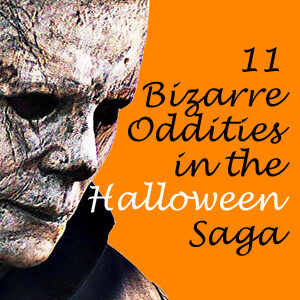“Score: A Film Music Documentary” almost seems like it’s cheating. Its score – by the very definition of the subject matter – is the greatest music cues from the history of film. And inevitably, that is a percentage of the doc’s appeal. But this is also an accessible 90-minute history lesson that vastly increased my knowledge of the topic while keeping me glued to the screen. It proves learning can be fun.
Released theatrically last year and now available for home viewing, “Score” starts with the invention of moving (but silent) pictures at the turn of the 20th century, when an organist would play a Wurlitzer at the front of the theater, largely to cover up the sound of the projector. But writer-director Matt Schrader, without ever stopping to make this blunt statement, goes on to make a strong case that film composing is different from most other art forms: It’s history is not merely about the advancement of time and technology.
While it’s true that the blue-collar composers out there are building on (or, ahem, copying) what the greats have done, “Score” demonstrates that film music’s evolution comes from individuals trying new things and not being beholden to “rules.”
Examples include Jerry Goldsmith using strange instruments for “Planet of the Apes,” Danny Elfman transplanting his Oingo Boingo synth-pop stylings into Tim Burton movies, Thomas Newman auralizing late-’90s suburban ennui with the pluck of a mandola string in “American Beauty” and Trent Reznor creating the “something big is developing” vibe of “The Social Network.” Of course, “Score” also showcases the more traditional (in the sense that they are descended from classical music) geniuses like John Williams.
Most of “Score” features fresh interviews with modern composers (including three of my favorites – “Buffy’s” Christophe Beck, “Armageddon’s” Trevor Rabin and “Terminator: The Sarah Connor Chronicles’ ” Bear McCreary), some of whose work is also showcased, such as “The Dark Knight’s” Hans Zimmer. The only big swing-and-miss is the absence of an exclusive Williams interview, but Schrader does pull an archival clip where Steven Spielberg recounts the first time he heard the “Jaws” theme: He thought Williams was pulling his leg. After laughing about the two-note theme, Spielberg said he was ready to hear Williams’ actual work.
Another wonderful anecdote, over the closing credits, comes from James Cameron talking about James Horner’s work on “Titanic.” I won’t spoil it, but suffice it to say I got teared up and lamented what a loss it is for the industry that Horner died in 2015.
“Score” brings all of these great composers – most of whom I couldn’t have picked out of a lineup beforehand – to life simply by showing their faces on screen, and they give fascinating personal insights. One says he’s terrified before every assignment because although he knows music pours out of a tap in his brain, he doesn’t know the original source of music and he fears it might dry up.

Briskly but lovingly paced, never lingering too long on one subject, “Score” also shows us the start-to-finish process of film scoring. It gets a little technical with the segment on a sound mixer’s duties on a “Transformers” movie, but even the logistics of making music are fascinating. For example, studio musicians don’t rehearse the way a garage band would. Because they know how to sight-read, they are actually playing it for the first time when the recording session begins.
And yet while world-class skill is important to making a great film score, so is imperfection. My favorite observation in “Score” is that if all the notes were played flawlessly, music would be terrible. It’s the slight imperfections from each player that makes the overall sound so rich. Along those lines, another composer notes that computers will never be able to fully replicate the human sound of an orchestra, and that’s why orchestras will always exist.
I admit that when I’m writing a movie review and the film’s score has gotten under my skin, I go to IMDb to look up the composer’s name to give the appropriate shout-out. I know it’s backward – I should be seeking out composers’ work the same way I do with directors, writers and actors – and that the people who make the music are almost always improving the film, often vastly.
I usually settle for a name drop and a generic adjective because I’d be hopeless at describing the “why” or the “how” of the music. I used to snub them completely: 21-year-old me wrote that “American Beauty” “is the type of film that can show a plastic bag floating in the breeze and have you reaching for the Kleenex,” without mentioning Newman’s name. As if it was about the plastic bag.
“Score” gives composers their due, without demystifying the beauty of the art form.

